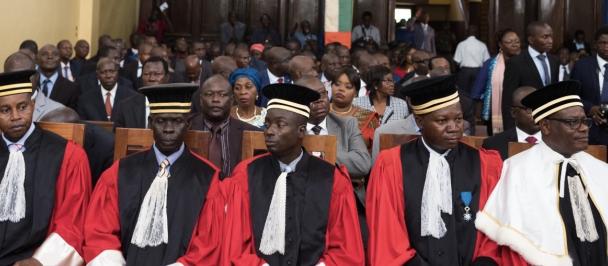Transitional Justice
Transitional justice works at the nexus of human rights, development, and peace and security to address legacies of mass human rights violations and build resilient communities. In post-conflict, crisis-affected and fragile contexts, people-centred truth-seeking initiatives and reconciliation efforts are essential to bring peace to affected communities and societies.
UNDP supports transitional justice processes in countries through a holistic development approach. This approach means tackling the root causes of systemic inequalities as part of a transitional justice response, in order to offer sustainable strategies. It involves working with national justice and security institutions, promoting national ownership and local solutions and providing full-fledged comprehensive support and capacity building across all stages of transitional justice process. And it requires dedicated attention and support to women's meaningful participation in the justice and security sector – as victims, survivors and rights-holders, and as leaders and decisionmakers – as a cornerstone of inclusive and effective rule of law systems.
Through strategic partnerships with the Peacebuilding Fund (PBF), Global Focal Point for the Rule of Law (GFP), the UN Human Rights Office (OHCHR) and UN Women, amongst others, UNDP seeks to maintain and expand transitional justice interventions, to develop new policy frameworks and respond with innovative approaches to the latest challenges.
Within the framework of the Global Programme and through the Justice Futures CoLab, UNDP promotes a people-centred approach to transitional justice which prioritises access to socio-economic, legal and political justice alongside the delivery of justice for mass atrocities. Only then can a society truly transform out of conflict.

Focal point
Lorena Mellado
Rule of Law, Security and Human Rights Specialist
lorena.mellado@undp.org
Hariwa Adil
Rule of Law, Security and Human Rights JPO
hariwa.adil@undp.org

 Locations
Locations

